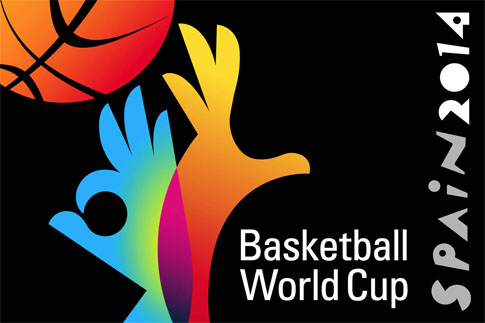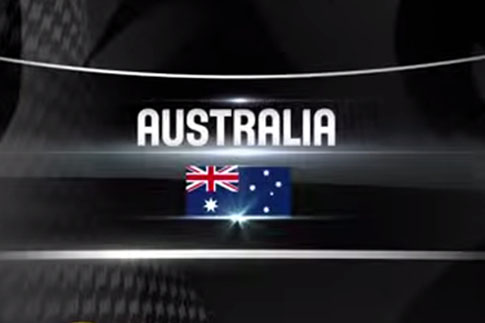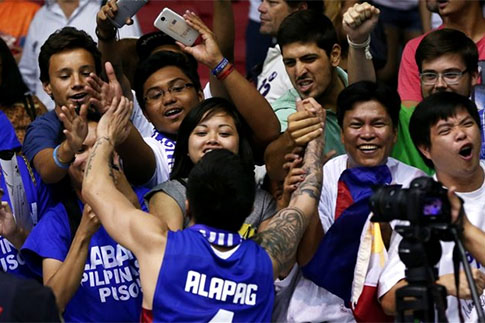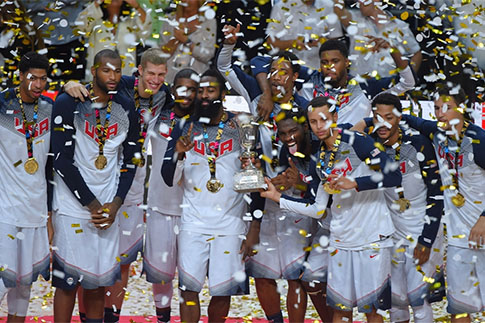FIBA Basketball World Cup
| # | Group A | W/L/P | Group B | W/L/P | Group C | W/L/P | Group D | W/L/P | ||||
|---|---|---|---|---|---|---|---|---|---|---|---|---|
| W/L/P Legend: W=Win, L=Loss, P=Points | ||||||||||||
| 1 | Spain | 5/0/10 | Greece | 5/0/10 | United States | 5/0/10 | Lithuania | 4/1/9 | ||||
| 2 | Brazil | 4/1/9 | Croatia | 3/2/8 | Turkey | 3/2/8 | Slovenia | 4/1/9 | ||||
| 3 | France | 3/2/8 | Argentina | 3/2/8 | Dominican Rep. | 2/3/7 | Australia | 3/2/8 | ||||
| 4 | Serbia | 2/3/7 | Senegal | 2/3/7 | New Zealand | 2/3/7 | Mexico | 2/3/7 | ||||
| 5 | Iran | 1/4/6 | Puerto Rico | 1/4/6 | Ukraine | 2/3/7 | Angola | 2/3/7 | ||||
| 6 | Egypt | 0/5/5 | Philippines | 1/4/6 | Finland | 1/4/6 | South Korea | 0/5/5 | ||||
Group A – Head to Head
- Egypt v Serbia 64-85
- France v Brazil 63-65
- Iran v Spain 60-90
- Serbia v France 73-74
- Brazil v Iran 79-50
- Spain v Egypt 91-54
- Iran v Serbia 70-83
- France v Egypt 94-55
- Brazil v Spain 63-82
- Egypt v Iran 73-88
- Serbia v Brazil 73-81
- Spain v France 88-64
- Brazil v Egypt 128-65
- Iran v France 76-81
- Serbia v Spain 73-89
Group B – Head to Head
- Croatia v Philippines 81-78
- Puerto Rico v Argentina 75-98
- Greece v Senegal 87-64
- Argentina v Croatia 85-90
- Senegal v Puerto Rico 82-75
- Philippines v Greece 70-82
- Croatia v Senegal 75-77
- Argentina v Philippines 85-81
- Puerto Rico v Greece 79-90
- Philippines v Puerto Rico 73-77
- Senegal v Argentina 64-81
- Greece v Croatia 76-65
- Senegal v Philippines 79-81
- Croatia v Puerto Rico 103-82
- Argentina v Greece 71-79
Group C – Head to Head
- Ukraine v Dominican Republic 67-62
- New Zealand v Turkey 73-76
- USA v Finland 114-55
- Dominican Republic v New Zealand 76-63
- Finland v Ukraine 81-76
- Turkey v USA 77-98
- Ukraine v Turkey 64-58
- USA v New Zealand 98-71
- Finland v Dominican Republic 68-74
- New Zealand v Ukraine 73-61
- Turkey v Finland 77-73
- Dominican Republic v USA 71-106
- Finland v New Zealand 65-67
- Ukraine v USA 71-95
- Turkey v Dominican Republic 77-64
Group D – Head to Head
- Angola v South Korea 80-69
- Australia v Slovenia 80-90
- Mexico v Lithuania 74-87
- South Korea v Australia 55-89
- Slovenia v Mexico 89-68
- Lithuania v Angola 75-62
- Angola v Mexico 55-79
- Australia v Lithuania 82-75
- South Korea v Slovenia 72-89
- Mexico v Australia 62-70
- Slovenia v Angola 93-87
- Lithuania v South Korea 79-49
- Australia v Angola 83-91
- South Korea v Mexico 71-87
- Lithuania v Slovenia 67-64
Round of 16
The FIBA World Cup 2014 Round of 16 will be played in Madrid and Barcelona. Winners of these games advance to the FIBA World 2014 Cup Semi Finals. Odds and lines for these games can be found here.
Saturday 6 September 2014
- USA v Mexico 86-63
- France v Croatia 69-64
- Dominican Republic v Slovenia 61-71
- Spain v Senegal 89-56
Sunday 7 September 2014
- New Zealand v Lithuania 71-76
- Serbia v Greece 90-72
- Turkey v Australia 65-64
- Brazil v Argentina 85-65
Quarter Finals
Tuesday 9 September 2014
- Lithuania v Turkey 73-61
- Slovenia v USA 76-119
Wednesday 10 September 2014
- Serbia v Brazil 84-56
- France v Spain 65-52
Semi Finals
Tuesday 11 September 2014
- USA v Lithuania 96-68
Wednesday 12 September 2014
- France v Serbia 85-90
Third Place and Final
Tuesday 13 September 2014, Third Place
- Lithuania v France 93-95
Tuesday 14 September 2014, Final
- USA v Serbia 129-92
The FIBA World Cup
 When it comes to the pinnacle of a sport, a World Cup is the event that athletes and fans care about and this is the case with basketball. While the FIBA World Cup has also been known as the FIBA World Cup of Basketball, the FIBA Basketball World Cup or the FIBA World Championship, there is no mistaking that this is the tournament that basketball players dream of winning and being involved with.
When it comes to the pinnacle of a sport, a World Cup is the event that athletes and fans care about and this is the case with basketball. While the FIBA World Cup has also been known as the FIBA World Cup of Basketball, the FIBA Basketball World Cup or the FIBA World Championship, there is no mistaking that this is the tournament that basketball players dream of winning and being involved with.
- Please click here for our FIBA World Cup Betting Guide.
The first FIBA World Cup took place in 1950 and since then, it has been on a schedule which has seen the tournament take place every four year (with two exceptions). Going into the 2014 tournament, the United States are the current holders, having triumphed in 2010 against Turkey. The 2014 event, held in Spain, will be notable because this is the final time the tournament will be held in a four year cycle. After Spain, the tournament enters a five year cycle, which means the next FIBA World Championship will be held in 2019. If any nation needed an added incentive going into the 2014 event, having the chance to be reigning champions for another year will surely place a spring in the step of the players.
The current format of the tournament sees 24 teams taking part, although this will change with the 2019 event, which will see 32 teams taking part in the FIBA World Cup.
FIBA World Cup Winners
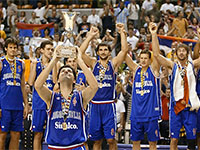 In the history of the FIBA World Cup, the nation with the most Gold Medals is the FR Yugoslavia, who have 6 Gold medals in total. In 1970, 1978 and 1990, the SFR Yugoslavia was triumphant and in 1998 and 2008, the FR Yugoslavia was triumphant. Clearly there is a long and difficult history when it comes to evaluating the long-term success of the FR Yugoslavia, and the role of players from nationalities that are now recognised as countries in their own right. However, with 6 Gold Medals and 10 medals in total, there is no doubt that the story of the FR Yugoslavia is one that is important in the history of world basketball.
In the history of the FIBA World Cup, the nation with the most Gold Medals is the FR Yugoslavia, who have 6 Gold medals in total. In 1970, 1978 and 1990, the SFR Yugoslavia was triumphant and in 1998 and 2008, the FR Yugoslavia was triumphant. Clearly there is a long and difficult history when it comes to evaluating the long-term success of the FR Yugoslavia, and the role of players from nationalities that are now recognised as countries in their own right. However, with 6 Gold Medals and 10 medals in total, there is no doubt that the story of the FR Yugoslavia is one that is important in the history of world basketball.
There is a strong argument to say that the USA is the most successful basketball team. They have a total of 11 medals from the FIBA World Cup and 4 of these are winners medals. The USA triumphed in 1954, 1986, 1994 and in 2010. Other winners of the tournament include USSR (3 winners, 8 medals), Brazil (2 winners, 6 medals), Argentina (1 winner in the first ever FIBA World Cup, 2 medals) and Spain, who achieved their only medal with success in the 2006 event.
Three countries have received a silver medal while not picking up any other medal. Russia has managed this twice while Greece and Turkey has managed this once. Five countries have received a bronze medal while not picking up any other medal. Chile has managed this twice while Germany, Croatia, Lithuania and the Philippines has managed this once.
Qualification for the tournament
The tournament expanded to 24 teams in 2006 and the allocation spots are as follows:
- FIBA EuroBasket (Europe) has 6 berths
- FIBA Americas Championship (North, Central, and South America) has 5 berths
- FIBA Africa Championship (Africa) has 3 berths
- FIBA Asia Championship (Asia) has 3 berths
- FIBA Oceania Championship (Oceania) has 2 berths
- Defending Olympic Champion has 1 berth, removed from the zone of the Olympic champion
- Host team has 1 berth
- And there are 4 FIBA-selected wild cards
More info about the qualification can be found in the FIBA Basketball World Cup Qualification article, published on 30 September 2013.
FIBA World Cup Format
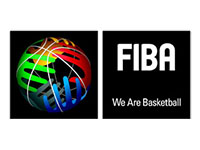 With 24 teams involved in the tournament, all of the 24 teams are placed into four preliminary groups featuring six teams. If teams are level at the end of the round, the tie-breakers are as follows:
With 24 teams involved in the tournament, all of the 24 teams are placed into four preliminary groups featuring six teams. If teams are level at the end of the round, the tie-breakers are as follows:
- Result of game between tied teams
- Goal average between games of tied games
- Goal average for all of the games involving tied teams
- Lot drawing
The top four teams from the group of 6 progress to the final 16, when an elimination knockout round behind. The top team in the group will play a 4th ranked team from another group while the 2nd ranked team in a group will play a third ranked game. The winners progress to the quarter-finals and the winners of the quarter-final round progress to the semi-final games. The losers of the quarter final-games play in a bracket to determine the places of fifth through eight.
The losers of the semi-final playoff to see who takes the bronze medal while the semi-final winners compete to see who takes the gold medal.
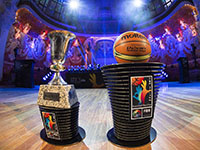 Since 1967, the teams have played for the Naismith Trophy, named after the person responsible for inventing basketball. This trophy was presented to teams from 1967 all the way through until 1994 when an updated version of the trophy was awarded to the winners of the 1998 World Championship. The original Naismith trophy can be found at the Pedro Ferrandiz Foundation, which is in Spain.
Since 1967, the teams have played for the Naismith Trophy, named after the person responsible for inventing basketball. This trophy was presented to teams from 1967 all the way through until 1994 when an updated version of the trophy was awarded to the winners of the 1998 World Championship. The original Naismith trophy can be found at the Pedro Ferrandiz Foundation, which is in Spain.
The current trophy has the continents and precious stones from the continents on it while the Naismith name is engraved on all four sides.
There is a great level of demand for the FIBA World Championships with a TV audience of 800 million people tuning in from 171 countries to see the 2010 event. There were also 30 million online views, a figure which is set to rise in 2014 and future editions. This represented a vast improvement on viewing figures from the 2006 event although as this was hosted by Japan, viewing times may not have been suitable for basketball fans in Europe or America.
FIBA Basketball World Cup Spain 2014
The 2014 FIBA World Cup is being hosted in Spain and six different cities and venues will be used, with five on mainland Spain and one on a Spanish island, Gran Canaria.
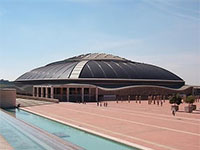 The venues are:
The venues are:
- Madrid, Palacio de Deportes de la Comunidad de Madrid, Capacity: 15,500
- Barcelona, Palau Sant Jordi, Capacity: 16,500
- Granada, Palacio Municipal de Deportes de Granada, Capacity: 7,500
- Barakaldo, Bizkaia Arena, Capacity 15,414
- Seville, Palacio Municipal de Deportes San Pablo, Capacity: 10,200
- Las Palmas, Gran Canaria Arena, Capacity: 11,500
The draw for the 2014 World Cup took place on the 3rd of February 2014 with all 24 teams being separated into 6 pots, with each pot containing 4 teams. Pot 1 contained the 4 top seeds according to world rankings (Argentina, Lithuania, Spain and USA) while the remaining pots were filled according to geography.
The Groups are as follows:
| Group A | Group B | Group C | Group D | ||||
|---|---|---|---|---|---|---|---|
| Spain | Philippines | Dominican Rep. | Lithuania | ||||
| Serbia | Senegal | Turkey | Angola | ||||
| France | Puerto Rico | United States | South Korea | ||||
| Brazil | Argentina | Finland | Slovenia | ||||
| Egypt | Greece | New Zealand | Mexico | ||||
| Iran | Croatia | Ukraine | Australia | ||||
 There is a special ball being used for the 2014 FIBA World Cup, designed by Molten and the mascots for the tournament are Olé and Hop. The FIBA World Cup gets underway on the 30th of August and the final is held on the 14th of September in Madrid.
There is a special ball being used for the 2014 FIBA World Cup, designed by Molten and the mascots for the tournament are Olé and Hop. The FIBA World Cup gets underway on the 30th of August and the final is held on the 14th of September in Madrid.
